Young reproductive-rights activists support the Jackson Women’s Health Organization during a January 2013 demonstration. Photo by Trip Burns.
Keith Dalton, a Jackson-area landscape worker and local punk musician, had never involved himself with the anti-abortion movement. In fact, he hated seeing the people with signs outside the Jackson Women's Health Organization, the last operating abortion clinic in Mississippi.
One day, while driving past protesters outside the bright pink building in Fondren on the anniversary of Roe v. Wade, Dalton started to weep. He said God placed a burden on his heart after seeing two girls outside the clinic crying and handing out informational pamphlets about abortion. He went home and tried to shake the feeling that God was calling him to act, but it never went away.
"God put it on my heart to come out here every morning to this spot and pray for God to have mercy on the women that come in," Dalton said.
Dalton joined the anti-abortion movement three months ago, and while he is still learning the ins and outs, he said he supports the Personhood initiative that seeks to outlaw abortion, and other services, in Mississippi. Personhood Mississippi is currently campaigning for Initiative 41 to appear again on the ballot in 2015.
Personhood was on the 2011 ballot as Initiative 26, also referred to as Amendment 26. Most voters—58 percent, with votes from the left and the right—listened to voter concerns, which included prohibition of birth-control pills and in vitro fertilization and possible death of the mother in life-threatening pregnancy, and voted down the bill on Nov. 8, 2011.
Dalton acknowledges the possible outcomes of Personhood, like the ban of hormonal birth control, but said, "For me personally, we don't use birth control, so it wouldn't affect me." He also believes saving fertilized eggs from being terminated offsets the sacrifices.
Failed The First Time
The anti-abortion organization Personhood Mississippi filed paperwork for Initiative 41 on March 5, 2013. If supporters gather 107,216 signatures by May 14, 2014, the bill will appear on the ballot in November 2015.
Anne Reed, spokeswoman for Personhood Mississippi, said the language of Amendment 26 confused voters, which is why her group believes the bill failed to pass. She said, with confidence, that the wording of Initiative 41 is much clearer, and Personhood Mississippi should not have a hard time collecting the needed amount of signatures.
Initiative 41 reads: "The right to life begins at conception. All human beings, at every stage of development, are unique, created in God's image and shall enjoy an inalienable right to life."
Initiative 26 read: "Should the term 'person' be defined to include every human being from the moment of fertilization, cloning, or the equivalent thereof?"
Jonelle Husain, a Mississippi State University graduate student and sociology instructor who has focused much of her research on abortion, said she was insulted when Personhood advocates immediately attributed the bill's failure to Mississippi voters being misinformed and misunderstanding the amendment.
"I don't know any voters who had been active on this issue that you could define as being confused by any stretch of the imagination," Husain said.
Atlee Breland, the founder of Parents Against Personhood who lives in Brandon, said most voters don't want to endure another Personhood campaign. "The vote and the campaign was very decisive for people," Breland said.
The Science Of Personhood
Breland, mother of three healthy children conceived through fertility treatment, said Personhood would entirely diminish women's ability to receive IVF. Freezing embryos, for example, would be banned under Personhood.
"When you say that (an embryo or zygote) is a person with a right to life, you can't do things that might potentially damage or injure that embryo's right to life. Even if you're otherwise doing them for a good cause," Breland said. "There's no way out of this conundrum that makes IVF possible under Personhood."
Reed ignores voters' and physicians' concern about Personhood implications by focusing on the well-being of the zygote—the fertilized egg.
"For those of us who might ask the question, 'Well, what about this and what about that?' if we're talking about exceptions, my question is, 'When is it alright to kill an innocent human being?' My answer to that is, 'It's never alright,'" Reed said in an interview.
The ambiguity of the language in the Personhood amendment makes it hard for Dr. Randall Hines of Mississippi Reproductive Medicine in Flowood to know exactly how the bill would affect reproductive health. He said the law lacks specificity, and its application would depend solely on the different courts' interpretations of the amendment.
Hines said any procedure during which a zygote is damaged could be questioned and potentially outlawed. Embryo cryopreservation, which is essential for in vitro fertilization, could be threatened.
"In the course of IVF or in the course of natural reproduction, eggs and embryos don't survive," Hines said. "If you took to the extreme, you would say every reproductive process could be jeopardized."
Birth-control methods that affect a mother's womb and could come in contact with and stop the growth of a fertilized egg could be questioned under Personhood.
"Almost every birth-control method has more than one mechanism, so depending on which mechanism of action you focus on, you could perhaps challenge any of them," Hines said.
In the case of a life-threatening pregnancy like ectopic pregnancy, during which a zygote forms in a mother's fallopian tubes, doctors must remove the fertilized egg surgically or medically. "You can't do any of those if your action is going to be interpreted by a court as violating the legal rights of a person," Hines said.
"The law is not specific enough, so it would be total chaos trying to figure out what was actually going to happen," Hines said.
Hines is confident voters would strike down Personhood a second time around, saying that legislation with ambiguous consequences is not logical.
"Courts and legislative bodies don't really play a role and should not play a role in (medical decision making). Patients should have autonomy, and doctors should practice medicine based on science, not based on some ill-conceived notion somebody has," Hines said.
"It is very frightening when you take these decisions away from doctors and patients, and start telling judges, 'You are responsible for the decision,'" Breland said.
Michelle Colon, a pro-abortion-rights activist who works as a clinic escort at the Jackson Women's Heath Organization, said Personhood does not make sense constitutionally, logically, or medically.
"Does that mean if I'm a pregnant woman I get two votes when I vote?" Colon said.
Diane Derzis, the owner of the abortion clinic, agrees with the analogy. "I think that if that person (zygote) could vote then the woman would have two votes, and that might scare the hell out of men."
"This has to be the most offensive piece of legislation ever designed by a man," Derzis said.
The Jackson Free Press reported in 2011 that Les Riley led the effort to obtain the 130,000 signatures to put Personhood on the ballot in 2011. Riley, a trailer salesman from Pontotoc, founded Personhood Mississippi, which is part of a national movement, Personhood U.S.A. Riley is a former member of the neo-Confederate League of the South and is a leader of the state's secessionist Constitution Party. The Right Wing Watch website calls him a "Christian separatist."
When announcing the new campaign last year to get Personhood back on the ballot, Riley told the media on a conference call: "(Voters) didn't understand the last amendment."
Traumatized Women?
Nick Bell, president of Students For Life, a pro-life organization at Mississippi State University, said his group focuses on the belief that life begins at conception, leaving other political and religious values up to each individual member. The group also raises awareness for the crisis pregnancy center in Starkville located on Academy Road. Bell said women who have abortions suffer from regret and feeling like a part of them has died.
"They have been so badly affected by their traumatic experience that they have now dedicated their lives to helping and counseling women who are considering abortion and women who have had (an) abortion," Bell said. "They say that they do not wish for other women to experience what they did, and so they want to help prevent that from happening to others."
Like Dalton, Bell considers not only the embryo but also the woman experiencing the unwanted pregnancy, believing that preventing abortion helps women.
Husain said that such generalizations about women who have chosen to have abortions further stigmatize the procedure by asserting that all women who have abortions are psychologically traumatized. These stories are part of a narrative used by pro-life advocates for political gain, she said.
The sociology instructor is writing her dissertation on reproductive justice and the anti-abortion movement, focusing her research on women in post-abortion recovery groups sponsored by crisis pregnancy centers. Women in these groups suffer from regret, depression and other symptoms of post-traumatic stress disorder. She found that the stories of women who attend these groups do not reflect that of the majority of women who have had abortions.
"Those claims, that abortion causes trauma that is similar to post-traumatic stress disorder, are not just without basis in the scientific literature, but all the major medical associations in the U.S. vehemently disputed those claims," Husain said. "There is just no data to support it."
This narrative, as Husain described it, is more of a construct by anti-abortion advocates, who publicize uncommon stories to advance their agenda. At the end of the recovery group session, women are encouraged to tell their stories publicly.
A study published in Perspectives On Sexual & Reproductive Health found that women in the United States had an estimated 1.2 million abortions in 2005.
"Only a very small number of women in that group claim to suffer negative effects, which raises questions about the legitimacy of these claims," Husain said. "I've had an abortion, and I don't hide that fact. Do I regret it? No. I don't regret the decision I made. I regret finding myself in those circumstances, but that's different. But you don't hear our stories."
Participating in these recovery groups, Husain said, changes how women understand their abortions.
Nada Scotland, former president of the American Psychiatric Association, has conducted research and written articles for the Journal of American Medical Association. She asserts that no scientific evidence links depression or other psychiatric diseases to abortion.
Colon said women will terminate pregnancies they do not want, and outlawing safe medical abortions creates dangerous situations for women facing unwanted pregnancies.
"It's stripping women of their autonomy, of their personhood," Colon said. "All woman should support the expansion of women's rights, not the restricting of women's rights."
A Utilitarian Argument
Dr. Clifton W. Story, executive director of University Health Services at Mississippi State, has worked as a doctor at MSU since 2008. Among other general physician care, Story deals with the day-to-day reproductive health of women. He has experience in prescribing birth control and diagnosing pregnancy.
Story, on whose office wall hangs a painting of a Jesus-like figure guiding the hand of a doctor performing surgery, agrees with the language in the Personhood amendment.
"I believe we're created by God. I think God is the one that initiates all that," Story said. "When the sperm and egg come together almost immediately, or within a few days anyway, the chromosomes that make up who we are and who we become are established."
Story, due to his religious beliefs, believes that the rights of the unborn babies outweigh those of pregnant women needing medical services that he wants to see prohibited. He doesn't know exactly what the amendment's language should include, but said the bill should address the devastating issue of abortion.
"I think we cloud the issue by worrying about these side issues—the IVF, the safety of the mother—and then we're still missing this very huge population of babies that are aborted, that are never given the chance to live," Story said.
Anja Scheib, MSU freshman business major and SFL member, said SFL does recognize one exception to the Personhood argument—ectopic pregnancy.
"There's no way the baby can survive, so at that point we consider saving the mom," Scheib said.
Although Personhood prohibits destroying a fertilized egg with no exceptions, Bell and Scheib both said they would vote for the bill, prioritizing the abolishment of abortion over allowing women to choose whether to have a child or to protect their own lives.
Husain, however, said that the Personhood amendment is an assault on the reproductive rights of women.
"I think the idea that we would have a legislative body inserting itself between the most private relationship, between a woman and her doctor, is just ludicrous," she said. "You can't, in one breath, say that women have equality when you are trying to take from them or threaten their most fundamental right, and that is to decide when and under what circumstances that they will be pregnant and have a child."

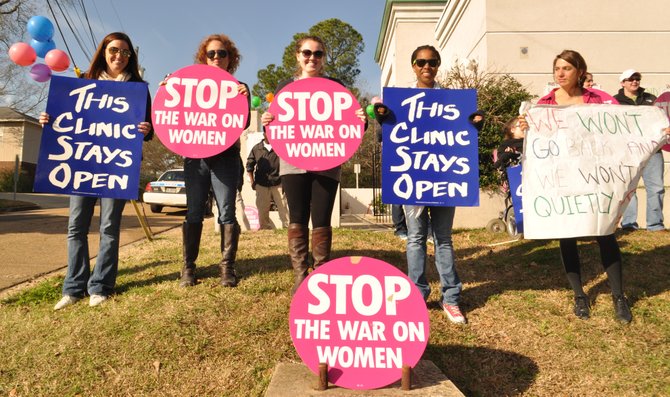
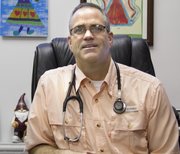
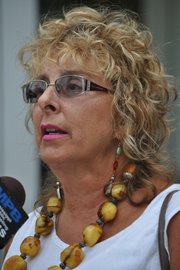
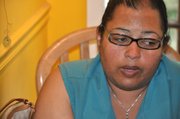
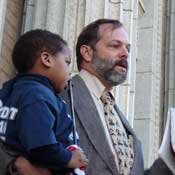

Comments